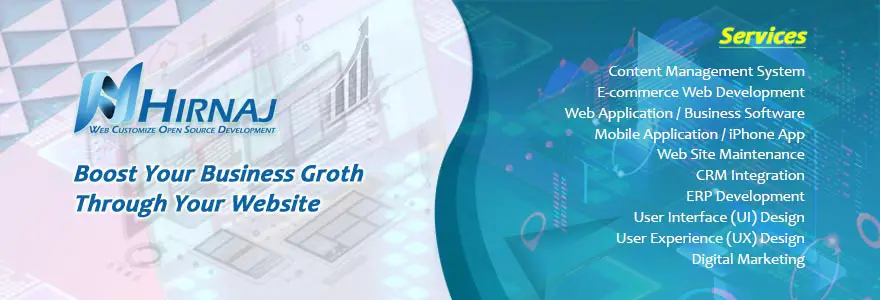Frequently Asked Questions Related to Web Design
SoftwaresCircle.com - Universal Place for anybody who is Looking For or Hiring Top Business Software, Website or App Developers, Designers, Marketing Services and Hosting Services in International
Softwares Circle helps millions of Users, Business or Organization to Find best Business Software and Web/Mobile App Design, Development, Advertising, Marketing, Hosting and IT/Business Service Provider Companies, Agencies, Firms, Consultants
Web development can be broken down into two main categories: Frontend development and Backend development. Frontend development involves creating the user interface and visual elements of a website or application using languages like HTML, CSS, and JavaScript. Backend development, on the other hand, involves creating the server-side code that powers the website or application and manages data storage and retrieval.
Web development requires a thorough understanding of web technologies and programming languages, as well as a creative approach to design and problem-solving. It also involves keeping up with the latest trends and best practices in web development, as technology and user behavior are constantly evolving.
Many web developers work in teams, collaborating with designers, project managers, and other stakeholders to create and launch successful web projects. There are also many resources available online for self-taught developers to learn and hone their skills.
Web marketing, also known as online marketing, digital marketing, or internet marketing, refers to the practice of promoting products or services using digital channels such as websites, social media, email, search engines, and other online platforms.
Web marketing encompasses a wide range of strategies and techniques, including search engine optimization (SEO), pay-per-click (PPC) advertising, social media marketing, content marketing, email marketing, and affiliate marketing. The goal of web marketing is to reach and engage with target audiences, drive traffic to a website, and ultimately, convert leads into customers.
One of the benefits of web marketing is that it allows businesses to reach a global audience, regardless of their location. It also allows for targeted marketing to specific demographics or interest groups, as well as the ability to track and measure the success of marketing campaigns in real-time.
Successful web marketing requires a deep understanding of digital marketing tools and techniques, as well as a comprehensive strategy that aligns with business goals and objectives. Many businesses choose to work with web marketing professionals or agencies to develop and execute effective online marketing campaigns.
SEO (Search Engine Optimization) services refer to a range of activities and strategies aimed at improving a website's visibility and ranking in search engine results pages (SERPs). The ultimate goal of SEO is to attract organic (non-paid) traffic to a website, thereby increasing its online presence and potential for business growth. SEO services are typically offered by digital marketing agencies or specialized SEO firms
Web design is the process of creating and designing the visual layout and functionality of a website. It involves a combination of technical skills and creative design elements to create a website that is visually appealing, functional, and user-friendly.
Web design typically involves several stages, including planning, wireframing, design, development, and testing. During the planning and wireframing stages, designers create a blueprint or visual map of the website, outlining its structure, navigation, and key features.
In the design phase, designers create the look and feel of the website, including the color scheme, typography, and imagery. The goal of web design is to create a visually appealing and engaging website that effectively communicates the brand message and engages the target audience.
Web design also involves creating a responsive design that adapts to different screen sizes and devices, as well as optimizing the website for fast loading speeds and search engine optimization (SEO).
Successful web design requires a deep understanding of web technologies, user experience design principles, and graphic design techniques. Many businesses choose to work with web design professionals or agencies to create a visually stunning and effective website that effectively communicates their brand message and drives business growth.
Web hosting services can be offered in a variety of different hosting types, such as shared hosting, dedicated hosting, VPS hosting, and cloud hosting. Each hosting type has its own unique features, benefits, and pricing models, depending on the specific needs of the website owner.
Shared hosting is the most common type of web hosting, where multiple websites share the resources of a single server. This type of hosting is often the most affordable option for small websites or blogs. Dedicated hosting, on the other hand, provides the user with an entire server for their website, giving them full control over the server's resources and configurations.
VPS hosting and cloud hosting are both scalable options that allow users to easily upgrade or downgrade their hosting resources as needed. VPS hosting involves partitioning a single server into multiple virtual servers, while cloud hosting uses a network of interconnected servers to provide scalable resources to users.
Business consulting is a professional service where experts, known as business consultants, offer their expertise and advice to businesses seeking improvements in various aspects of their operations. These consultants work closely with business owners, managers, and stakeholders to identify challenges, develop strategies, and implement solutions that can lead to enhanced performance, increased efficiency, and overall growth. Business consultants may work as independent contractors, part of consulting firms, or as in-house consultants within larger organizations. They often bring a fresh perspective and expertise to address challenges that may be beyond the current capabilities of the business. The scope of business consulting can be quite broad and cover multiple areas including Strategy and Planning, Market Research and Analysis, Operational Efficiency, Financial Management, Marketing and Sales, Human Resources, Technology and Digital Transformation, Risk Management and Compliance.
105, Dale Avenue, Edgware,
London - HA8 6AB
Monday - Friday
10:00AM - 06:00PM
